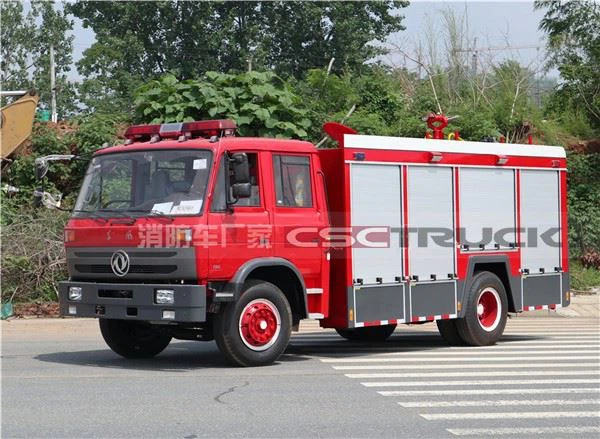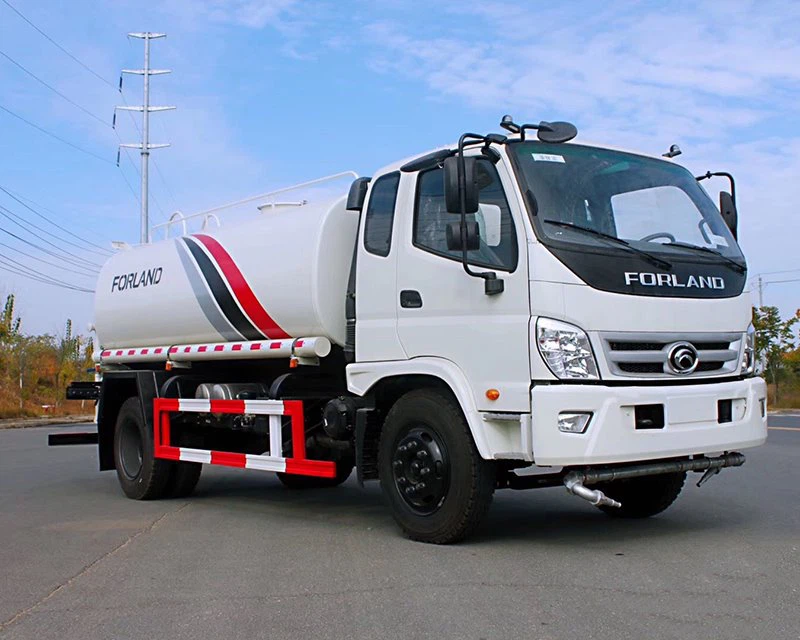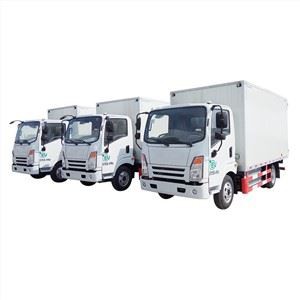Introduction
In the modern logistics landscape, the ability to transport goods at specific temperatures is crucial for maintaining quality and safety, particularly in industries like food, pharmaceuticals, and agriculture. Small refrigerated trucks have emerged as a vital solution, bridging the gap between standard transportation and the specialized needs of temperature-sensitive deliveries. This article delves into the benefits, applications, features, and costs associated with small refrigerated trucks, providing valuable insights for businesses considering this investment.
What Are Small Refrigerated Trucks?
Small refrigerated trucks, also known as reefer trucks, are specialized vehicles equipped with insulated cargo areas and temperature-controlled systems. These trucks can maintain specific temperatures ranging from below freezing to cooler ambient temperatures, ensuring that perishable goods like food items and pharmaceuticals are kept safe during transport.
Types of Small Refrigerated Trucks
Small refrigerated trucks come in various types tailored to specific needs:
- Box Trucks: Enclosed vehicles with a cubic cargo area, ideal for bulk transport.
- Sprinter Vans: Smaller vehicles suited for urban delivery with limited space.
- Pickup Trucks with Refrigerated Units: Versatile vehicles that provide flexibility for small deliveries.
The Importance of Temperature-Controlled Transport
Understanding the importance of temperature-controlled transport is vital for businesses that deal with perishable goods. Refrigerated transport helps to:
- Preserve Freshness: Keeping food at appropriate temperatures maintains its quality and extends shelf life.
- Prevent Spoilage: Temperature-sensitive products can spoil, leading to loss and health hazards.
- Comply with Regulations: Many industries have strict guidelines for transporting perishable goods that require temperature control.
Features of Small Refrigerated Trucks
When considering small refrigerated trucks, it’s essential to understand their key features:
Insulation
High-quality insulation is critical for maintaining temperatures inside the truck. This prevents heat transfer and maintains the desired temperature throughout the journey.
Refrigeration Units
The refrigeration unit is the heart of a small refrigerated truck. Different types of refrigeration systems include:

- Carrier Units: Ideal for consistent refrigeration.
- Transport Refrigeration Systems: Designed to meet varying temperature needs.
Size and Payload Capacity
Small refrigerated trucks vary in size and payload capacity. Depending on business needs, choosing the right size ensures efficient transport and compliance with weight regulations.
Applications of Small Refrigerated Trucks
Small refrigerated trucks serve various industries, including:
Food Industry
Restaurants, caterers, and grocery stores rely on refrigerated trucks to transport fresh produce, meat, dairy, and frozen items.
Pharmaceuticals

Healthcare suppliers use refrigerated transport for medications and vaccines that require strict temperature controls.
Flowers and Plants
Florists and wholesalers use small refrigerated trucks to maintain the freshness of flowers during transport.
Cost Comparison: Buying vs. Leasing Small Refrigerated Trucks

When considering acquiring a small refrigerated truck, businesses often face the decision between buying and leasing. Below is a cost comparison:
| Factor | Buying | Leasing |
|---|---|---|
| Initial Cost | Higher upfront payment | Lower initial investment |
| Monthly Payments | None post-purchase | Regular monthly payments |
| Maintenance Costs | Owner’s responsibility | Often covered by lease |
| Depreciation | Owner bears depreciation costs | Not applicable to lessee |
| Tax Benefits | One-time depreciation deductions | Possible deduction of lease payments |
Tips for Choosing the Right Small Refrigerated Truck
Choosing the right small refrigerated truck involves several considerations:
Assess Your Needs
Evaluate the type of goods you will be transporting, the distances you plan to cover, and the temperature ranges required for your products.
Consider Delays and Routes
Analyze delivery routes, including urban vs. rural settings, and consider potential delays during transport. A reliable refrigeration unit will perform better under consistent demand.
Inspect Maintenance History
Whether buying or leasing, inspect the maintenance history of the truck to ensure reliability and longevity.
Regulations and Compliance for Small Refrigerated Trucks
Compliance with regulations is essential when operating refrigerated transport:
Food Safety Regulations
Operators must adhere to food safety standards established by local health departments and agencies.
Licensing and Insurance
Proper licensing is required for commercial refrigerated transport, along with adequate insurance coverage to protect goods during transit.
Common Challenges and Solutions in Operating Small Refrigerated Trucks
Operating small refrigerated trucks comes with its own set of challenges:
Temperature Fluctuations
Temperature fluctuations can lead to spoilage. Regular maintenance of refrigeration units and continuous monitoring can mitigate these risks.
Fuel Efficiency
Refrigerated trucks can consume more fuel than standard trucks. Opting for newer, more efficient models can help manage fuel costs.
Future Trends in Small Refrigerated Truck Technology
As technology advances, small refrigerated trucks are expected to adopt innovative solutions for better efficiency:
Telematics
Real-time fleet tracking using telematics helps monitor the temperature and location of goods during transport.
Electric Refrigerated Vans
As the focus shifts to green technology, electric refrigerated vans are gaining traction for sustainable transport solutions.
FAQ Section
What is the typical temperature range for small refrigerated trucks?
Most small refrigerated trucks can maintain temperatures between -20°F to 75°F, depending on the specific requirements of the cargo.
Can I use a regular cargo truck for refrigerated transport?
Regular cargo trucks are not suitable for temperature-sensitive goods without a specialized refrigeration unit, as they lack the necessary insulation and temperature control.
How do I maintain a small refrigerated truck?
Regular inspections of the refrigeration unit, maintaining proper insulation, and following a scheduled maintenance plan are crucial for optimal performance.
What materials are commonly used for the insulation of refrigerated trucks?
Typically, materials like polyurethane, polystyrene, and fiberglass are used in the construction of insulated walls for refrigerated trucks.
Are small refrigerated trucks expensive to operate?
The operational costs of small refrigerated trucks can vary based on fuel consumption, maintenance, and insurance, making it essential to analyze potential expenses beforehand.